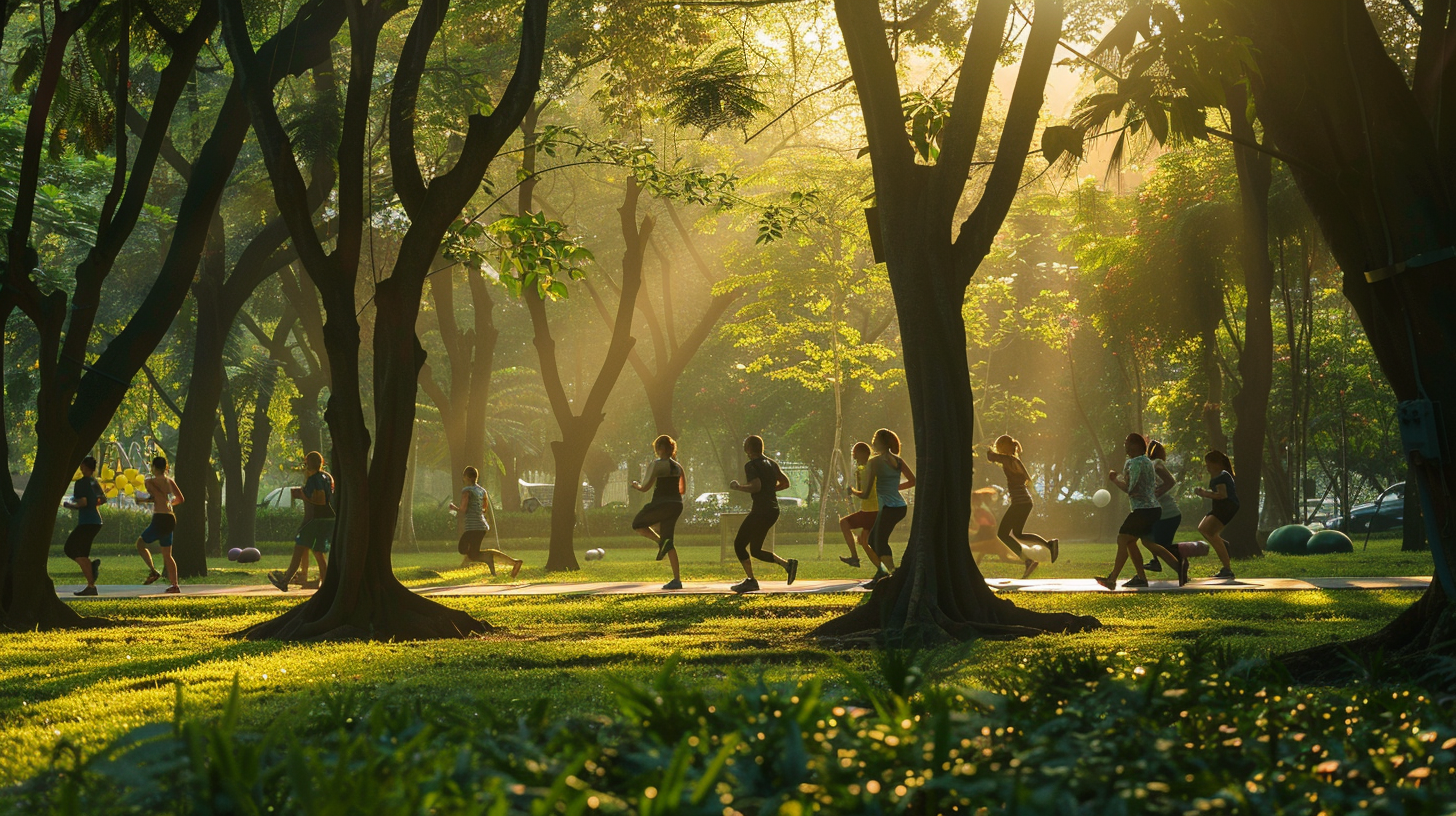
Depiction of people engaging in various physical activities like jogging, yoga, and strength training outdoors in a lush park setting. The atmosphere should feel serene, with soft sunlight filtering through trees, while the individuals appear focused and peaceful, symbolizing mental clarity.
Exercise plays a critical role in reducing depression symptoms. This review analyzed a range of studies, highlighting the substantial benefits of physical activity. “Our results show that various forms of exercise, including walking, jogging, yoga, and strength training, effectively alleviate depressive symptoms,” noted Dr. Michael Noetel. The impact is notable when compared to conventional treatments.
A Closer Look at Exercise Modalities
Different forms of exercise influence depression management. For instance, walking or jogging had a significant effect on both men and women, while strength training was particularly effective for women. Dr. Noetel added, “Younger individuals may benefit more from strength training, whereas yoga proved highly effective among older adults.” Vigorous intensity exercises also appeared to offer the best results.
Why Exercise Works for Mental Health
The mechanisms behind exercise’s impact on depression are not entirely clear, but the study suggests multiple pathways. “Social interaction, mindfulness, and the neurobiological effects of physical activity seem to combine to create a powerful antidepressant effect,” explained Noetel. Strength training can enhance self-efficacy, while yoga promotes mindfulness and self-compassion.
Implications for Treatment
These findings challenge current treatment guidelines that recommend exercise only as a complementary therapy. Dr. Taren Sanders emphasized, “We believe that exercise should be viewed as a primary treatment for depression, especially given its wide-reaching effects and the fact that it is accessible to many.” The researchers propose that treatment plans should adapt exercise prescriptions based on individual patient characteristics.
Citation: Noetel M, Sanders T, Gallardo-Gómez D, et al. Effect of exercise for depression: systematic review and network meta-analysis of randomised controlled trials. BMJ. 2023;384. doi:10.1136/bmj-2023-075847.
This content is generated from the original article original article and it’s under Creative Commons Attribution Non Commercial (CC BY-NC 4.0) license, which permits others to distribute, remix, adapt, build upon this work non-commercially, and license their derivative works on different terms, provided the original work is properly cited and the use is non-commercial.





